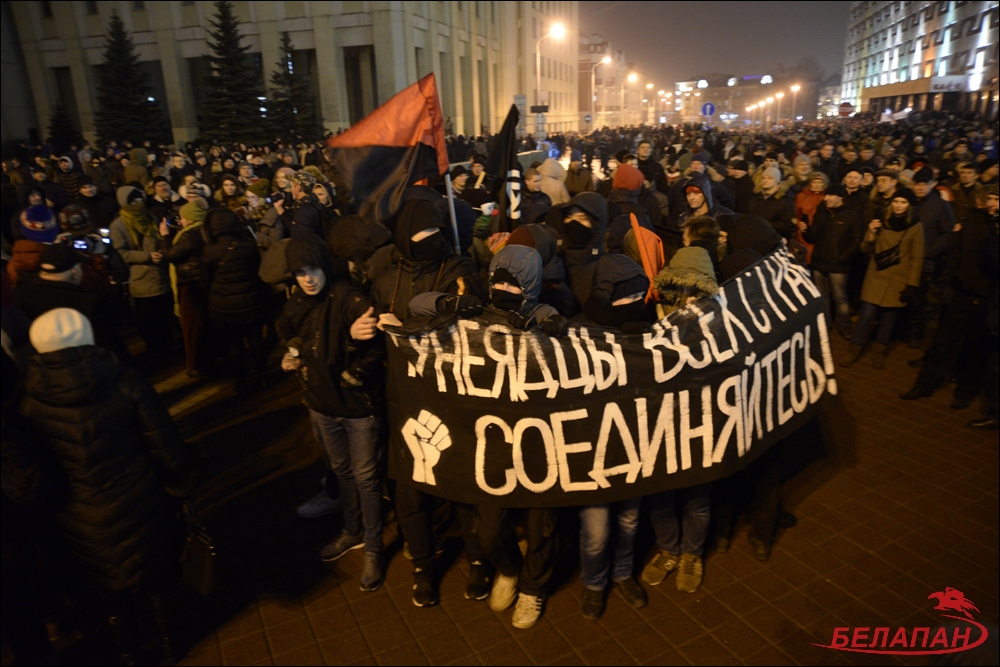Moscow – Russian President Vladimir Putin stated that, having decided to end the ceasefire, Ukrainian President Petro Poroshenko accepted responsibility for the renewal of military action. He stated this on Tuesday in his speech at a meeting with Russian ambassadors and permanent representatives. A big part of Putin’s speech directly or indirectly touched on the recent events in Ukraine, as well as Ukrainian-Russian relations.
Russian President Vladimir Putin talked about the events in the east of Ukraine, international sanctions against Russia, and the atmosphere in the world, during his meeting with Russian ambassadors and permanent representatives. According to him, Russia and Europe were unable to convince Petro Poroshenko that “the road to reliable, strong, long-term peace cannot lie through war,” and, de facto, placed the entire burden of responsibility in Donetsk oblast on the Ukrainian President’s shoulders.
“Up until now Petro Olexiyovich was never directly involved with the order to begin military action. Now he has taken up full responsibility for this – not only in the military, but the political sense, which is much more important,” noted Putin.
“Mixed up”
The Russian President was unable to forego the issue of gas in his speech either. And in this case, according to Putin, the Ukrainian side is responsible for the disruption of talks.
“Well, they mixed up something with some of their partners, they receive our gas and pay someone from the western partners in Europe which don’t get enough volume. We see everything. We don’t employ any measures today simply not to make the situation worse,” said he.
When speaking to the high-standing diplomats, Putin hinted numerous times at the fact that the Russian government has some fear that the revolutions and strive for freedom in some countries may spread to Europe and Russia.
“All of us in Europe need a safety net, for the Iranian, Libyan, Syrian, and, unfortunately, this list should also include the Ukrainian, precedents not to become a contagious disease,” noted Putin.
He also gave a very characteristic explanation of the Crimean annex: “We did not have the right to leave the Crimean and Sevastopol citizens with the audacity of military nationalists and radicals.”
“A pitiful speech”
However, famous Russian political expert Liliya Shevtsova emphasises the style and stylistics of Putin’s recent speech. To her mind, the head of the Russian state did not look as confident as he did before.
“This time Putin did not behave the same way he did during his previous speeches,” she notes. “Especially during the period of his Crimean speech – it was an apotheosis of aggressiveness, militarism, self-confidence. This time Putin looked… I won’t say pitiful, he never looks pitiful, but, let’s say, he was not confident in what he was saying. Either he was physically unwell or not confident in himself, and he was no confident in the message he was supposed to present to the audience he gathered. By the way, the audience represented Russian diplomacy, and diplomacy and foreign police are the most important instrument of Putin’s influence and execution of foreign Kremlin policy at home, inside Russia. Therefore Putin was not militaristic, he was not aggressive, regardless of the aggressive wording. Putin was different, not “Crimean.” Possibly this is just a superficial impression, but if we are talking about the content of his speech, this speech was no different, it was like chewing the same gum he has been chewing for several months now. Nothing new. And in general it was a speech full of complaints. He complained about everyone, he complained about the Americans, the Ukrainians, overall about the fact that the world doesn’t understand him. If we are talking about anything new, there was probably one thing, more in terms of terminology. When he once more confirmed the Russia intends to protect the interests of Russians and compatriots across the border, he used the phrase, “right to self-defence.” This is a confirmation of the same rhetoric and political language, which means that he, despite the rhetorical adherence to law, views himself as being outside the legal field. At least, the international agreements practice does not acknowledge “right to self-defence” of certain ethnical contingents inside any countries. There are other international institutions and international instruments for protection of these rights.”
“In general, I would say that the audience did not get a concrete operative order from Putin, what it is to do in this very complex international situation, into which the country has been pushed by Vladimir Putin. On one hand, he demonstrated a firm position regarding Ukraine, but not extreme militarism,” noted Liliya Shevtsova. “Because, essentially, it is obvious that he is still solving the issue of what shape his destabilization of Ukraine would take. He also softened somewhat, recently there has been some softening in his position regarding America. Yes, America is the enemy, and America is constantly doing something bad and causing us problems, America is using blackmail, but nonetheless, we are not ending our relations with America. They are offensive to us, but we are open. Please, just understand that you are being offensive to us. This was Putin’s message to the US. So it was a speech made by a leader who is trying to look like a warrior, who is trying not to step back, who is trying to look like a victor, who is trying to look like a politician who establishes the rules of the game, and is explaining them to the world, and at the same time it was a person who was obviously unsure of what he was saying. He was saying old written truths, which don’t accord with world realities, they are truths of the previous century.”
Meanwhile Lilya Shevtsova noted that her thoughts only touch on the part of Putin’s speech that was accessible to the broader public. Possibly, other important things were said by Putin to high-standing Russian diplomats behind closed doors.
Source: Radio Svoboda
Translated by Mariya Shcherbinina





